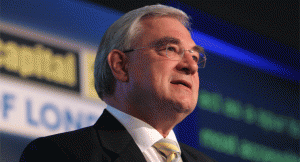Transport
London has the oldest Underground system in the world, and it shows. The investment demands into the system, to ensure that it meets modern standards and requirements, are significant and enormous. From rolling stock to air conditioning. From frequency to capacity, not forgetting fare structures. Every one of the issues engages every Londoner, and every visitor to it. A transport system must:
- Support economic development and population growth;
- Enhance the quality of life for all Londoners;
- Improve the safety and security of all Londoners;
- Improve transport opportunities for all Londoners;
- Reduce transport’s contribution to climate change and improve its resilience;
- Support the delivery of the London 2012 Olympics and Paralympics and their legacy.
Significant steps forward have been taken since we came to office in May 2008: the freedom pass has been extended to 24 hour service, war veterans now have free travel on all TfL services, under 16s travel for free on buses, the much maligned bendy buses are on the way off the streets of London, and the new Routemaster has been designed. Oyster cards have been expanded to rail and Thames Clipper services, and we are looking further at ways in which we can make the river at the heart of the transport system, we have very successfully launched the Boris bikes scheme, with over 1 million journeys being made in the first week with only 5 bikes being stolen. We are now looking to expand the scheme eastwards, with a further 6,000 bikes, and the corresponding docking stations. We are also building cycling Superhighways, to encourage cycling and make it safer. We are increasing the capacity of the Tube network with massive investment in rolling stock, new signalling systems, longer platforms, additional carriages, and more frequent services, despite the problems and costs of taking the PPP (public private partnership) in house.
The Underground system is slowly improving, much for the better. We have secured funding to continue the improvement programmes, and also to ensure the delivery of Crossrail, the greatest civil engineering project in Europe, which is planned to open in 2018. DLR capacity is being increased by 50% to meet expected growth in demand by 2012. iBus technology on all of London’s buses. The real challenge for people in West London is the route of HS2 (High Speed train 2). The vast majority of us support the need for developing the high speed train network in the UK, linking the Midlands and the North to Eurostar and HS1, obviating the need for short haul flights within Europe and the UK. The great challenge is to ensure the proper route is identified and built. The current “preferred route” will have a massive impact upon the residents in West London, from North Acton to Harefield, not to forget those people who live in the Chilterns, on the suggested route to Birmingham. Public consultation will start at the end of February, and we should all express our views to ensure that the best route is selected, with minimum impact and greatest advantage to London.
